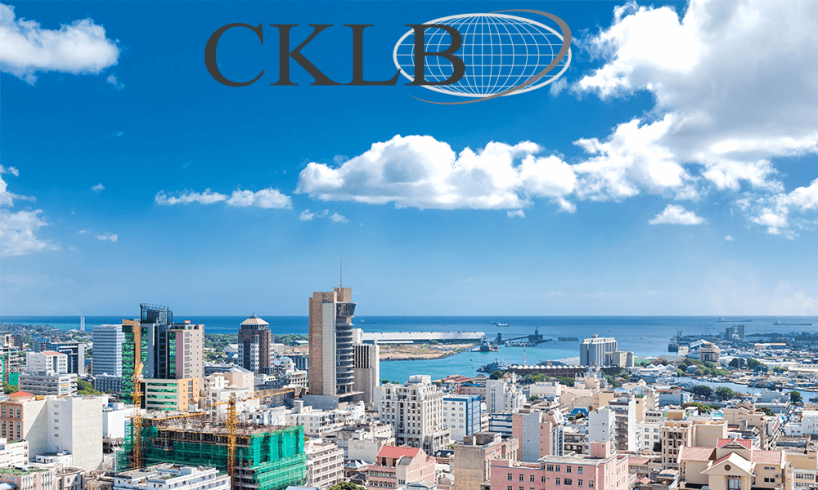
CKLB was founded in 1998, is well-established and independently owned. As a medium sized firm, they pride themselves in their ability and commitment to provide a personal and tailor-made services for their clients. In an in-depth interview with the firm’s Adrien Li, he reveals his firm’s expertise in understanding the specific requirements and needs of their clients, which are key to the successful development of CKLB.
Please can you give us a brief description of your firm does?
We provide a one-stop quality service, with an emphasis on local presence and substance, indeed we have a varied client base including international private and corporate clients, high-net-worth individuals (HNWI), family offices, companies listed on major exchanges, private equity (PE) firms and intermediaries in major financial services jurisdictions.
CKLB’s wide range of services include: advice to HNWI’s and family offices in developing efficient estate planning solutions; management and family office support structures; a focus on a complete set of fund structuring and administration services; corporate structuring and advice; company formation and corporate management; administration and accounting; establishment of trusts and provision of trustee services; back office administration and accounting services; outsourcing and payroll services; business administration services, including international trading, licensing and financing; expatriates occupation and residence permits; group investment holding and management services.
What role do staff play in the success of your firm?
CKLB’s staff know and are reminded at every possible opportunity that they play a key role in the organisation’s success, indeed their commitment in delivering their work to a high ethical standard is vital to maintain relationships with our existing clients. In addition, ensuring that we continue to grow our client base from valued sources of new business, which of course are client referrals. Even more so, we look upon our staff to service our clients at a high level, and in turn the firm can look after them.
As an organisation, all staff have a role to play in servicing client needs whether that is directly or indirectly, analogous to a series of connected links that make a chain strong. While technology and systems help to render our work more efficient in the end, personal and tailor-made services coupled with ethical standards, will win you long term relationships and new clients.
What do you think are the major trends and developments currently shaping the industry in this region?
The financial services industry is journeying unprecedentedly in an era where it faces continual challenges and numerous threats whether it is economic, technological, consumerism, regulatory, public trust, and so on along with globalisation, all of which have made things far more complex.
The ongoing shift in global economic activity from developed to developing economies, accompanied by growth in the number of consumers in emerging markets, are the global developments that the world is witnessing. The financial services industry must adapt and re-invent for an efficient distribution of investible resources, enabling sound global economic growth and an equitable distribution of wealth.
The rise of Africa’s financial services industry in recent years has been significant. From an underinvested industry and relatively unexplored by international investors a mere decade ago due to perceived risks (well founded) and limited profit potential, today, Africa financial services industry is considered to be one of the continent’s brightest prospects, and by the same token, a means to tap into Africa’s broad and unexploited growth potential.
A number of African economies have registered significant economic growth, while the rest of the world are still under the effect of the 2008 financial crisis, and is witnessing the emergence of Africa as the next driver of world economic growth.
Africa today is no longer regarded to be uniquely risky, on the contrary, opportunities abound. This is not to say that challenges do not exist, in contrast, these remain plentiful. With the exception of the handful of countries that have developed financial markets, many other African countries’ financial markets are still in an embryonic stage.
The economic services provided by the finance industry encompass a broad range of businesses that manage money, but the three main sectors that will most likely shape the continent’s future are banking, insurance and private equity.
While the growing presence of subsidiaries of major global banks on the continent has undoubtedly improved the availability and quality of financial services in recent years, the focus was essentially but not exclusively, on high margin corporate businesses as opposed to financial inclusion for lower income households and the traditional sectors of economies. Indeed, according to the World Bank, at most, 20% of African households have access to formal or semi-formal finance.
Africa’s emerging middle class, which is forecast to triple over the next two decades, along with a sharp surge in urbanisation, presents a massive potential that lies within Africa’s growing consumer base. Indeed, with real GDP per capita in many African countries exceeding the critical US$1,000 mark, a rapid expansion in retail banking is foreseen over the coming years as financial institutions gear up to tap into billions of dollars in deposits from Africa’s rising wave of prosperity. To do so however, institutions will continually need to embrace innovative solutions and disruptive innovations to shape banking products to fit consumers’ rising financial sophistication needs, as well as the micro entrepreneurs as much of which could well be beyond the realm of ‘traditional banking and other financial products’ per se.
The insurance market in Africa is under-developed; indeed, apart from South Africa, Namibia and Mauritius, all countries have very low penetration ratios. This is mainly because most African countries are classified within the low income level of the World Bank and are thus too poor to afford insurance. However, growth prospects are substantial thanks to rising incomes, increased participation by foreign companies and more innovative insurance products.
A significant part of private equity investment in Africa is being targeted specifically at the financial services industry and telecommunication sectors, both of which benefit direct from Africa’s strong economic revival, urbanisation, and population growth. Mobile technology and innovative strategies are set to modernise banking and financial services for the continent’s poorest.
Private equity is already experiencing a boom as the perceived risks of investing on the continent decline, and as global liquidities seek profitable opportunities elsewhere than in depressed developed markets. While agriculture, mining and energy sectors have always been important for Africa’s economy, the importance of food production is increasing on the back of global population growth.
Perhaps the most exciting opportunities in itself are the result of Africa’s own demographic changes, which are fuelling urbanisation, employment and growth in disposable income. These trends make consumer-focused businesses attractive and international private equity investors are taking notice.
What do you think are the major trends and developments currently shaping the industry in this region? What about Mauritius?
Mauritius has a well-established financial services industry and a well-diversified economy with long period of economic and political stability. For decades, Mauritius has built long-standing relationships with key African and international bodies, including the Southern African Development Community, the World Trade Organization and the Commonwealth of Nations. Furthermore, Mauritius does well on most international benchmarks and is first on benchmarks of the African region. Financial services account for over 10% of GDP and they are the fourth pillar of the economy besides sugar & agriculture, textile & manufacturing as well as the tourism industry.
Like South Africa, the Mauritius financial services industry is much more developed than that of other African countries. The Mauritian economy has been resilient in the post financial crisis era, and indeed the island nation well-developed banking and insurance sectors have hardly been affected. For example, according to the World Bank, its large and medium size insurance companies are ‘efficient and strong’. The insurance penetration ratio is in the region of 4.5%. Life insurance is also well-developed, accounting for 61% of total insurance premiums.
In fact, Mauritius targets and positions itself as an international financial centre having embraced international financial services since the enactment of offshore banking in 1989 and non-banking offshore financial services in 1992, now known as global business. The global business sector plays an important role in Mauritius’ financial services industry and has been a catalyst to a host of financial products that the island offers: corporate structuring, global investment funds, private wealth management, captive insurance, international arbitration, are just a few among a host of products and services that the island offers to facilitate international cross border businesses in addition to being an interesting double taxation treaty jurisdiction.
Indeed, Mauritius as an international financial centre has been a success to date home to over 900 active global investment funds investing to a large extent into emerging markets and India, plus more recently on the African continent mainly in the legal form of private equity fund structures.
Besides double taxation agreements (DTAs), Mauritius also entered into Investment Promotion and Protection Agreements (IPPAs) with a number of states. Mauritius offers full protection of foreign investments in key African states through its network of IPPAs. As at date, Mauritius has signed 44 IPPAs, including ones for 23 African countries.
The IPPAs guarantee Mauritian investment with respect to expropriation and social unrest in contracting states. They also provide for arrangements for the settlement of disputes between investors and the contracting states. This is a very important form of protection that investors look for when choosing a credible international financial centre.
In addition to the already existing host of products and services, the finance minister announced in the recent budget speech new licencing products such as global legal advisory services; investment adviser (corporate finance advisory); representative of investment adviser (corporate finance advisory); global headquarters administration; global treasury activities; overseas family corporation; and investment banking. These will make Mauritius a truly international financial centre and a solid one-stop shop jurisdiction.
What challenges and opportunities lie ahead for the company in 2016 and beyond, as well as in the region you are based in?
Irrespective of the drivers of economic growth, it is these sharp increases in economic performance, along with the continent’s booming population and urbanisation that will continue to spur foreign investors’ interest in the haven of opportunities offered by the massive consumer potential, including the financial services industry.
Mauritius has a key role to play to channel foreign direct investments (FDIs) into the African continent, having a platform that oozes confidence to international investors and stakeholders with the right mix of products, services, regulation and protection.
Finally, I believe that CKLB has the right mix of expertise to assists investors and businesses doing business in Mauritius and in the region. CKLB has assisted many businesses to set up operations in Mauritius to date, and over the last couple of years we have assisted a growing number of international investors’ (international private and corporate clients, companies listed on major exchanges, PE firms, and so on) to setup appropriate corporate structures to invest on the African continent.
Company: CKLB International Management Ltd
Name: Adrien Li
Email: adrienli@cklb.com
Web Address: www.cklb.com
Address: Felix House, 24 Dr Joseph Riviere Street, Port Louis 11602, Mauritius
Telephone: 230 405 8800






















